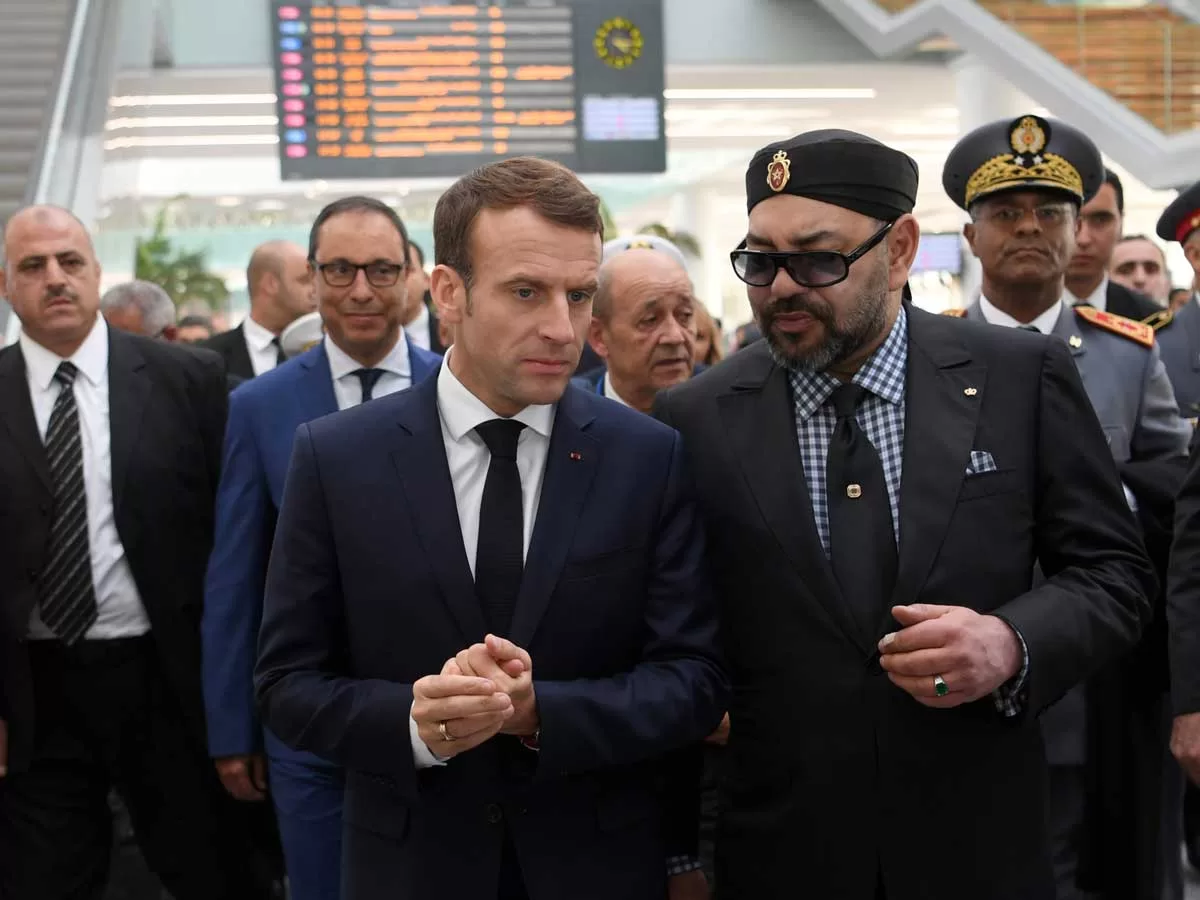France has maintained a neutral stance on the issue of the Moroccan Sahara. However, it has been mostly supportive of Morocco’s position in international forums such as the European Union and the Security Council. This support has continued up to the present time. Recently, France and 12 other members of the Security Council voted in favor of a resolution that supports Morocco’s position on the Sahara issue. Russia and Kenya abstained from the vote. As a result, the MINURSO mission’s work has been extended for another year. This decision indicates that the relationship between Morocco and France has not been affected and remains positive, despite the expected tension due to the significant shift in the Sahara file of Morocco in favor of Morocco since its American recognition.
In terms of Moroccan foreign affairs, the Moroccan Sahara has become a major focus of their diplomatic efforts. Morocco seeks a clear position from the French government regarding their foreign policy towards the Moroccan Western Sahara. Currently, The Kingdom of Morocco has shifted its discourse on the Sahara dispute, recognizing that the nature of its relationship with any state may be determined by its position on the matter. Morocco aims to resolve this issue, which has previously hindered their ability to take action and move forward with initiatives.
Morocco is expecting France to take a specific stance on the Western Sahara territory conflict due to the historical ties between the two countries. These ties date back to when France occupied the North African region, and its influence in the area has been significant. France’s position on the issue is crucial given its influential role in the region. At this stage, it is also important to consider other factors that have contributed to the crisis, such as the need to reconstruct a strategic relationship among Northern African countries after losing their position due to the US, China, and Russia rivalry in the region.
As we are all aware, a diplomatic disagreement arose due to the collapse of the relationship between France and Morocco. This happened because France’s administration interfered with Morocco’s internal policy through its Western Sahara issue by aligning with the Algerian state. The presidency of Emmanuel Macron since 2017 further complicated the relations between the two states, as his primary incentive was to improve relations with Algeria. However, the Moroccan elite believed that Paris gave preference to a country that supported the Polisario Front.
There has been a disagreement between Morocco and France, stemming from the French government imposing visa restrictions on citizens from the Maghreb region, including Moroccans, in September 2021. Originally set to end in December 2022, the restrictions were later canceled by the French administration. The tension between the two countries is driven by regional and international competition in Africa, as well as economic interests. However, their interdependent interests make it unlikely for the tension to lead to a complete break in ties. Both Francophone and Moroccan interest groups in both states are actively seeking a solution to the crisis.
Despite the uncertainties, Moroccan foreign affairs have not given up hope of changing its European alliance for strategic relations and its legacy in diplomacy. However, why did Moroccan diplomacy open the door to Britain and Spain to diversify strategic cooperation instead of France?
The Moroccan-British partnership has been a remarkable development in the last decade. Rabat has worked to build bridges of cooperation and further deepen its partnership with the Anglo-Saxon alliance, since the beginning of talk about Brexit, and has grown economically, politically, and culturally in current years, which will make it in the foreseeable term at the expense of Morocco’s traditional ties in the European Union, namely France, and the latter is aware of this. The same with Spain, which has a shared maritime border with Morocco, and economic, political, and security strategic interests, were significantly enhanced after overcoming the recent crisis between the two states, so Spain turned into a defender of Moroccan interests within the corridors of the European Union and enjoyed economic privileges within the Kingdom of Morocco.
The kingdom of Morocco and France share a strategic consensus on global issues, making France Morocco’s top economic partner. French companies and international firms lead foreign investments in Morocco. The French language is essential for managing daily administrative affairs within Moroccan official institutions. Furthermore, France is the primary destination for Moroccans wishing to travel or study abroad, and it is also home to the largest Moroccan community in the world.
In summary, the French government may recognize Moroccan sovereignty over the southern provinces, particularly the Moroccan Sahara. This is because French Foreign Affairs has become aware of the existential and critical nature of the Moroccan Sahara issue. It is time to establish the foundations for resolving this conflict, especially since other states have shown support by opening diplomatic institutions in the cities of Dakhla and Laayoune.
